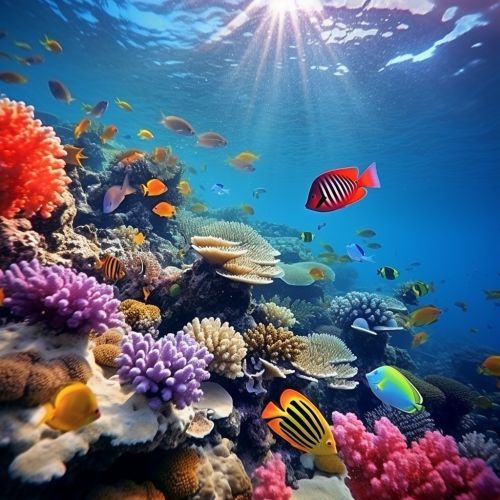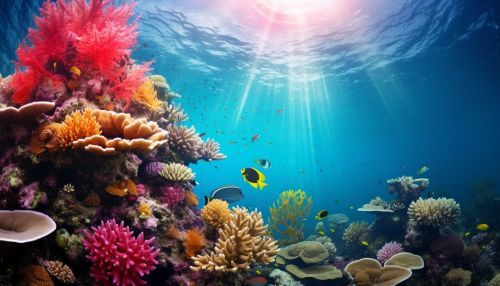Marine Biodiversity
Introduction
Marine biodiversity refers to the variety of life forms within the oceanic environment, including the diversity within species, between species, and of ecosystems. It is a key indicator of ocean health. Marine biodiversity is not evenly distributed across the globe, and is richest in the Western Pacific, where over 33% of the world's marine phylogenetic species reside.
Importance of Marine Biodiversity
Marine biodiversity plays a critical role in maintaining the health of the planet. It supports a number of vital ecosystem services, including producing oxygen, sequestering carbon, and providing ecosystem food supplies. Furthermore, it is a source of economic wealth, providing food, jobs, and contributing to the resilience of coastal communities.


Threats to Marine Biodiversity
Marine biodiversity faces numerous threats, including overfishing, habitat loss, pollution, invasive species, climate change, and ocean acidification. These threats often act synergistically, exacerbating their individual effects.
Overfishing
Overfishing is a major threat to marine biodiversity. It can lead to the depletion of key reef species in many regions, affecting the reef's ability to recover from coral bleaching or cyclone damage.
Habitat Loss
Habitat loss is another significant threat to marine biodiversity. Coastal development, dredging, mining, and bottom trawling can all cause significant damage to marine habitats.
Pollution
Pollution, including nutrient pollution, chemical contamination, plastic debris, and oil spills, can have devastating effects on marine biodiversity. These pollutants can harm or kill marine organisms, damage habitats, and disrupt ecosystems.
Climate Change and Ocean Acidification
Climate change and ocean acidification are perhaps the most pervasive threats to marine biodiversity. Rising temperatures can lead to coral bleaching and the loss of breeding grounds for marine mammals and birds. Ocean acidification can affect the ability of shell-forming organisms to produce their shells and can alter the behavior of fish and other marine species.
Conservation of Marine Biodiversity
Conservation of marine biodiversity is crucial to maintain the health of our oceans and the services they provide. This can be achieved through a combination of protected areas, sustainable management practices, and international cooperation.
Marine Protected Areas
Marine protected areas (MPAs) are one of the most effective tools for marine biodiversity conservation. They can protect habitats and provide a refuge for marine species.
Sustainable Management Practices
Sustainable management practices, such as sustainable fishing and aquaculture, can help to reduce the impact of human activities on marine biodiversity.
International Cooperation
International cooperation is essential for the conservation of marine biodiversity. Many marine species migrate across national boundaries, making international cooperation necessary for their protection.
